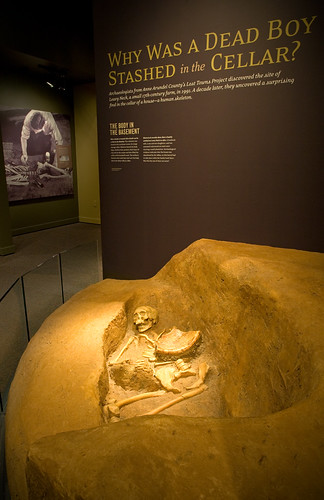SALT LAKE CITY, June 27 /PRNewswire/ -- An estimated 24 million prescriptions were written last year for "bone health" drugs including the two most popular, Fosamax(R) and Boniva(R). But as Business Week recently reported, more than 70% of patients concerned about bone health stop taking the drugs during the first 12 months of treatment because side effects (potentially serious side effects can include esophageal bleeding, heartburn, ulcers and osteonecrosis of the jaw -- also known as "dead jaw"). Even worse for these international drug giants, you can't turn on a TV without seeing an ad from some lawyer actively seeking "victims" of bone health drugs... increasing Fosamax fears.
So what do you do when your doctor tells you to stop taking Fosamax, Boniva or any of the other bisphosphonates (and, as the medical community knows, calcium alone is not enough)? Well... the winner in this bone-health controversy is The Carter-Reed Company(TM), the makers of OsteoValin(TM), the new, all natural, non-drug compound that is currently being touted as "the" bone health breakthrough.
"We were lucky enough to hit the market at the right time," says Carter-Reed spokesperson, Heather Hurst. "We had no idea that so many women were unable to take Fosamax and Boniva. Frankly, OsteoValin sales were rather slow until the Fosamax controversy began to heat up and doctors began inquiring about the research supporting OsteoValin's safety and efficacy. Now, OsteoValin is flying off the shelves at Wal-Mart, Walgreen's, CVS, Rite-Aid and, of course, GNC Nutrition Centers. We've even had inquiries from doctors as far away as England, Germany, France and Australia. And for good reason."
Michael Levine, MD, of the Cleveland Clinic explains: "Reduced bone mass is a serious, serious problem. In fact, women can start losing bone mass after age 30. At age 50, one-third of women and one-fifth of men will be at risk of sustaining an osteoporotic fracture over the rest of their lifetime. Importantly, many of these fractures will occur without warning and without any clinical symptoms, because bones of the spine can break without causing any pain. That's why solutions such as Fosamax, Actonel(R) and Boniva are so important. Yet, many people find it hard to take these drugs because of side effects; and when I suggest they stop I can see how discouraged my patients become. Visions of an active lifestyle suddenly disappear. It's as if they feel condemned."
OsteoValin is a tested, well-tolerated mineral complex that does what calcium can't: OsteoValin not only helps the body slow bone deterioration, it actually helps build new bone mass.
As noted endocrinologist Joel Ehrenkranz, MD, one of the scientists responsible for the introduction of OsteoValin, explains: "Your bones naturally breakdown and rebuild themselves. Up to the age of 30, you are actually building more bone than you are losing. But after age 30 it's often a different story. We begin losing bone mass. Our bodies start to breakdown bone faster than we build new bone mass. OsteoValin helps on both sides of this equation. The OsteoValin mineral complex downregulates (that is, slows) osteoclast activity (osteoclasts are cells that destroy bones) so your body loses less bone mass. Calcium works in much this same way. But unlike calcium, OsteoValin does more. It upregulates (that is, increases) the activity of osteoblasts (cells that build new bone) to help your body build new bone mass. So for those patients who can't tolerate Fosamax and other bisphosphonates, OsteoValin is well-researched and a highly-effective all-natural, non-drug choice available at your local drugstore."
The key OsteoValin mineral complex has been used effectively to increase new bone mass since the 1940s. Multiple human studies confirm that oral administration of the mineral complex resulted in increased bone mass and that this newly formed bone has normal cellular architecture. At a dose of 600 mg per day, the mineral complex is effective in increasing bone mass, increasing bone density and maintaining vertebral integrity. Observations in over 1000 subjects who received 300-700 mg a day for up to two years show that the key OsteoValin element is safe, effective, and essentially side-effect free.
"OsteoValin isn't a calcium replacement nor is it meant to replace prescription drugs," says Ms. Hurst, "but it can be a god-send for those who simply can't take Fosamax or Boniva and are concerned about bone health."
A medical briefing for physicians and selected media will be held on June 28 at The Explorers Club in New York City.
Note: All trademarks are the property of their respective owners.
CONTACT: Heather Hurst of Majestic Media, +1-801-530-2911, heather.hurst@mjstc.net, for The Carter-Reed Company
Source Citation
"As Fosamax(R) Fears Grow, Sales of New Bone Health Compound, OsteoValin(TM), Soar." PR Newswire 27 June 2006. Academic OneFile. Web. 31 Dec. 2009.
Gale Document Number:A147502147

Thursday, December 31, 2009
As Fosamax(R) Fears Grow, Sales of New Bone Health Compound,OsteoValin(TM), Soar.
Labels:
write
Subscribe to:
Post Comments (Atom)


No comments:
Post a Comment